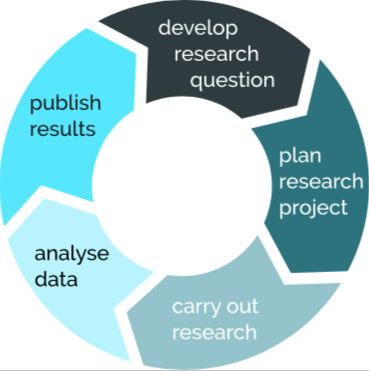Main contact: Dr. Ulrike Wuttke (wuttke@fh-potsdam.de)
Registration: you will find the registration details for each individual webinar in the dedicated section for the individual webinar.
For questions about the registration use: parthenos-webinars@fh-potsdam.de.
About the PARTHENOS eHumanities and eHeritage Webinar Series
Nowadays we are experiencing the transformation from the analogue to the digital in the study of our past. This so-called digital turn allows us to engage differently with the materials, and changes the way research is conducted. This transformation requires a thorough understanding of the diverse ways that new tools, methods, and technologies enable researcher(s) to conduct their work. Innovative approaches within traditional fields of expertise have opened up, leading to a critical discussion of opportunities and challenges that go along with this. This wealth of digital data and methods has to be organised in order to help researchers find and share their data and tools, develop and solve research questions, engage with other researchers and, last but not least, disseminate and archive their results. We use the term “digital research infrastructure” to refer to the measures and facilities put in place to support the use of digital methods and tools in research. In a way, such infrastructures are the digital counterpart of “analogue” research infrastructures such as libraries, archives or research labs, or, to take another example in the natural sciences, facilities such as space telescopes or particle accelerators. In the humanities digital research infrastructures such as DARIAH, CLARIN, EHRI, E-RIHS, just to name a few examples, play an ever increasing role.
The webinars from the PARTHENOS eHumanities and eHeritage Webinar Series provide an opportunity to explore these new possibilities and provide a lens through which a more nuanced understanding of the role of Digital Humanities and Cultural Heritage research infrastructures in and for research and beyond can be garnered. Participants of the PARTHENOS Webinar Series will delve into a number of topics, technologies, and methods that are connected with an “infrastructural way” of engaging with data and doing humanities research along the research life cycle, such as theoretical and practical reflections on digital and analogue research infrastructures, opportunities and challenges of eHumanities and eResearch, finding, working and contributing to Research Infrastructure collections, standards, FAIR principles, ontologies, tools and Virtual Research Environments, new publication and dissemination types.

Research Life Cycle
The PARTHENOS eHumanities and eHeritage Webinar Series is based on PARTHENOS activities and contents of the PARTHENOS Training Suite and is conducted by leading experts in the different fields.
Starting from the researchers’ perspective, the individual webinars will focus on the role of Research Infrastructures in the individual phases of the research life cycle and on the engagement in Research Infrastructures in general.
Learning outcomes: Each webinar of the PARTHENOS Webinar Series has an individual focus and can be followed independently. Please find details in the description of the individual webinars that will be announced below on a rolling basis. Participants who follow the whole series will gain a complete overview on the role and value of DH and CHI research infrastructures in and for research and beyond and will be able to identify Research Infrastructures especially valuable for their research/data.
Assessment: there no formal assessment for any of these webinars
Mode of Delivery: live, online (Adobe Connect). The materials and videos of the webinar will be made available on the PARTHENOS Training Suite.
Audience and Participation:
The PARTHENOS eHumanities and eHeritage Webinar Series is aimed at Digital Humanities and Cultural Heritage practitioners who wish to learn how to optimally benefit from and cooperate with Research Infrastructures. The webinars are also suitable for computer scientists and researchers/practitioners in data centers who want to gain more insight into humanities and cultural heritage related aspects of digital research infrastructures.
The webinars are aimed at entry level, no specialist knowledge is required to attend. Participants may wish to browse the relevant sections in the PARTHENOS Training Suite to benefit most from the webinars. No programming skills are required. All potential parties are welcome.
Registration:
Participation in the webinars is free, only registration is required via Eventbrite (you will find the registration details for each individual webinar in the dedicated section for the individual webinar). For questions about the registration use: parthenos-webinars@fh-potsdam.de.
Technical requirements for participation:
It is very easy to participate. The webinars are conducted using Adobe Connect. To participate from your desk in one of the webinars you need only access to the internet, speakers/headphones and an up-to-date web-browser with installed Adobe Flash Player.
The details for the individual webinars will be announced on a rolling basis (left sidebar).
CREDITS
The PARTHENOS eHumanities and eHeritage Webinar Series was developed by University of Applied Sciences Potsdam and Leipzig University (Elisabeth Burr, Stefanie Läpke, Heike Neuroth, Rebecca Sierig, Ulrike Wuttke) for the PARTHENOS project.
The PARTHENOS eHumanities and eHeritage webinar series is a cross PARTHENOS training effort with input and speakers from several PARTHENOS Work Packages as well as external experts. It is organised and moderated by Ulrike Wuttke (University of Applied Sciences Potsdam) and especially supported by PARTHENOS Work Package 7 (led by TCD), Work Package 2 (led by CLARIN) and WP 8 (led by NIOD-KNAW).
Image credits:
“home-office-336378_1920.jpg” by Free-Photos / 9121 immagini – CC0 Public Domain, available from Pixabay, accessed 9th January 2018
“Research Life Cycle” by PARTHENOS – CC0 Public Domain.

